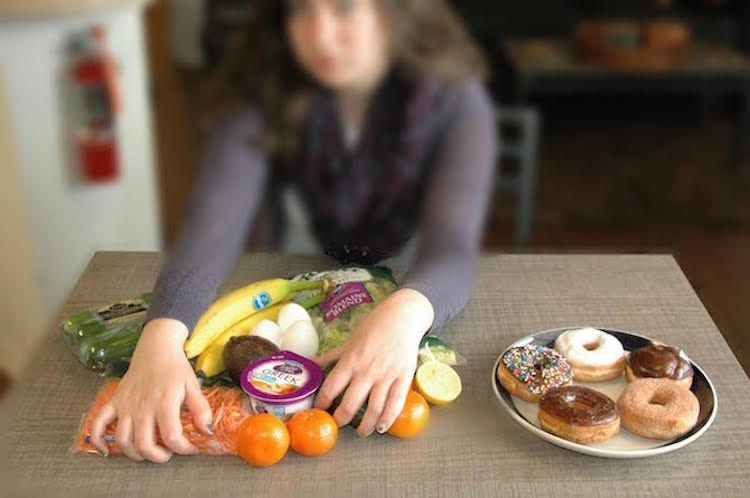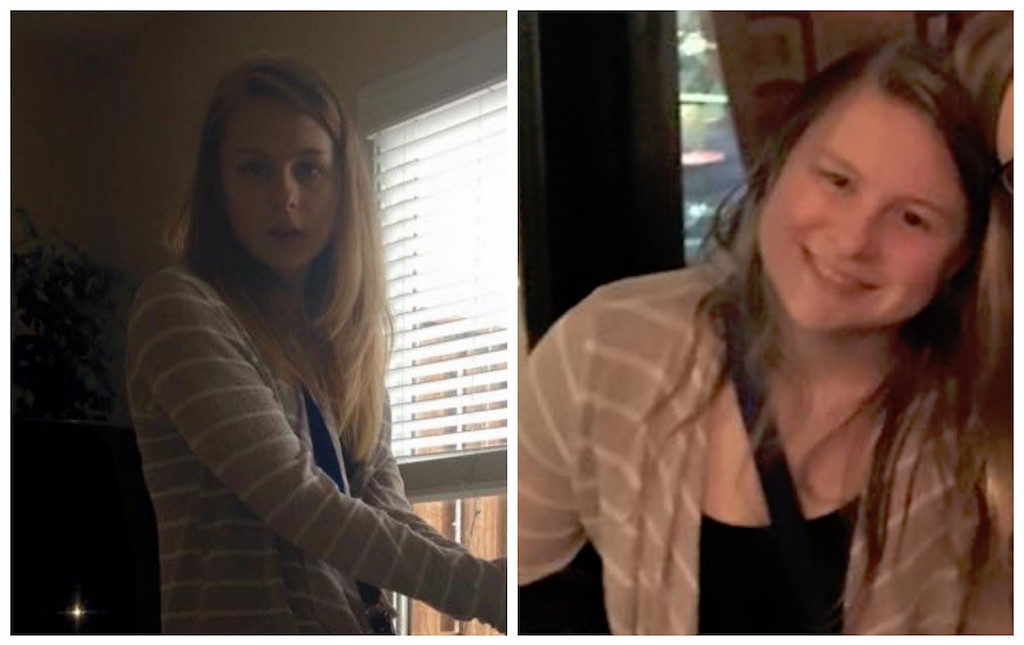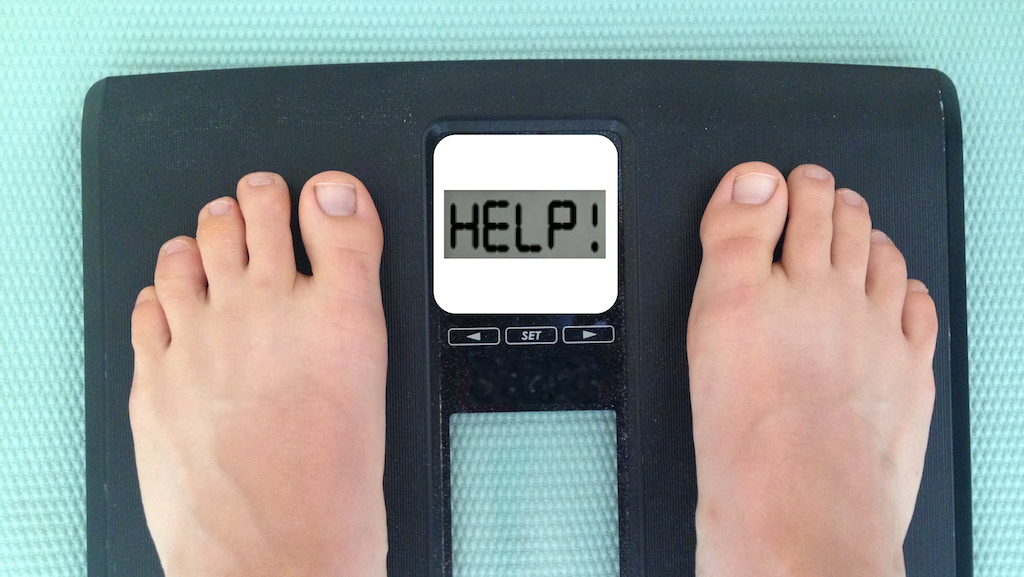I will spare you the gory details of how my mental health slowly deteriorated throughout high school, but in a nutshell, my relationship with food had been messed up for awhile.
I struggled with exercise bulimia for years before developing orthorexia during my senior year of high school. I meticulously journaled my incredibly restrictive diet. Although I occasionally allowed myself a small treat, my diet mostly consisted plain lean meat, vegetables, fruit, yogurt, and the occasional slice of whole wheat bread.
After I lost 20 pounds, I let up a little bit. I gave up my food journal and let myself eat more freely. I thought that was it. I thought that I had just magically reached a point where I could be healthy without excessively regulating everything that I ate.

Photo by Kate Monick
Then I started college. It’s not as if I entered my dining hall for the first time and was instantly hit with an insatiable desire to eat everything in sight. Eating disorders are not that obvious. Or that simple.
Sure, I started eating more right off the bat but, probably not more so than the average college student. Most of us eat a little bit more during our freshman year (ever heard of the Freshman 15?).
It didn’t escalate until a couple of months into the school year when I began to feel depressed and alone. I was close to home, but no one from my high school was attending the same college. I still hadn’t made any good friends and was dealing with a breakup.
It didn’t help that I coped with my stress by isolating myself. My days mostly consisted of exercising, class, work, and watching TV in my dorm. And eating. The dining hall became my only comfort. Especially coming off months of restrictive eating, I was enticed by the variety of options.

Photo by Jennifer Cao
Plus, all of it was “free” in the sense that my family had already paid a fixed price for me to eat unlimited meals. Grabbing another slice of cake didn’t cost me anything extra.
In the dining hall, I could also easily eat a ridiculously massive amount of food without others judging or growing concerned about me. No one really pays attention to anyone else. We’re all just self absorbed college students going about our day. So I got away with binging.

Gif courtesy of giphy.com
Most of what I was eating would still be considered healthy. I ate lots of chicken, fruit, eggs, vegetables, yogurt, etc. I just ate way more of it. To the point that I felt sick. Then, because my meal had been “healthy,” I could justify eating dessert. Just a cookie. And maybe a piece of cake. And maybe some cereal to finish off (because that was “healthy” right?). This happened two to three times a day (plus snacks).
In retrospect, I’m not even entirely sure how my smallish stomach handled that much food. Well, I guess it really didn’t. By Thanksgiving break, I had regained the 20 pounds I had lost before coming to college.

Photo by Lexi Nickens
Still, it didn’t hit me that I had a problem. I just justified it by telling myself “this is just the weight your body is supposed to be at.” In fact, I still do believe that I am meant to be at this weight. I shouldn’t have lost the 20 pounds in the first place, but I also should not have gained them back in two measly months through binge eating.
It didn’t hit me that I had a problem on my hands until my winter break. I had six weeks off, and when I was home, I no longer had access to a dining hall. Consuming the amount of food that I had become accustomed to eating at school required sneaking around behind my family’s back and raiding my pantry late at night.
I cannot stress enough that eating disorders are never just about food. They stem from deeper problems, like mental illness, negative body image, control issues, and often a combination of these.

Photo by Lexi Nickens
Your circumstances may change, and you may think you have fixed your disorder. For me, whenever I was going through a good period, I could also improve my relationship with food, so I never felt like I had to actually deal with it.
However, as soon as my circumstances changed (dealing with the stress of college while having access to a dining hall), my eating disorder resurfaced. Over the last six months, I began making an active effort to deal with my disorder and its underlying causes, and I finally feel like I have real and permanent control over my eating.
I still have to work every day to keep myself from obsessing on food, binging, or over-exercising to compensate. Some days I fail completely; some days I forget I’ve ever even struggled. Most days lie somewhere in between, but for the first time in my life, I know I am capable of maintaining a good relationship with food as long as I put in the effort.
If you’re suffering from an eating disorder, I encourage you to get the help that you deserve. Remember, you are not alone, and recovery is possible. It can and will get better.


